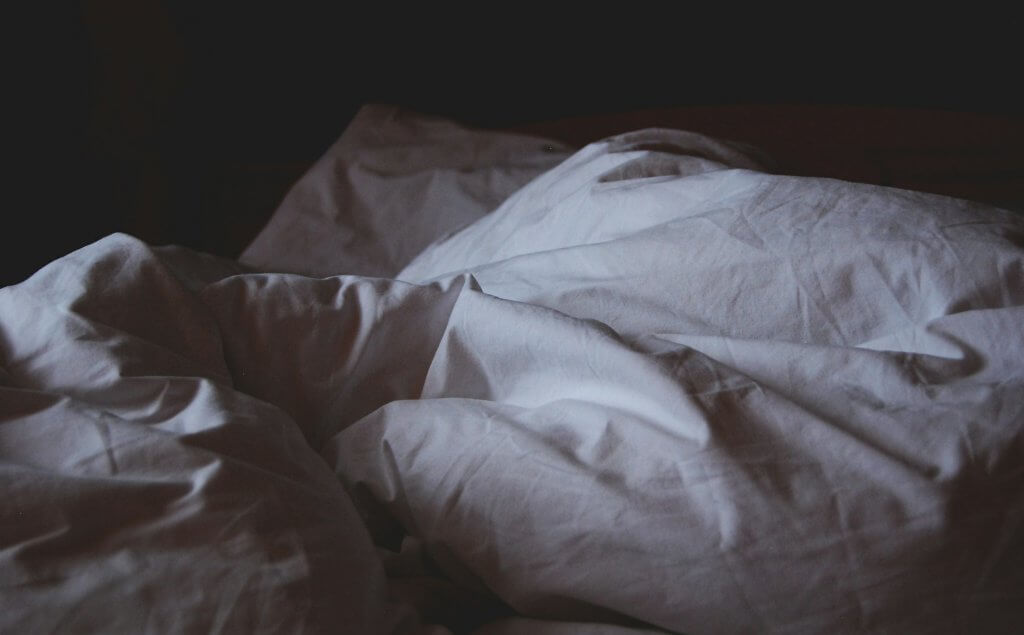
As counsellors, we often see how the concept of darkness can evoke fear or discomfort in individuals. However, when it comes to sleep, darkness plays a crucial role in promoting optimal health and well-being. In this blog post, we will explore the benefits of sleeping in total darkness, strategies for creating a dark sleep environment, and the transformative effects of embracing darkness beyond just improving sleep quality.
Why has “darkness” as a concept gotten a bad rap over the years? It’s important to recognize that our fear of darkness often stems from societal conditioning and cultural beliefs. From childhood tales of monsters hiding under the bed to horror movies depicting darkness as a source of danger, many of us have been conditioned to associate darkness with fear and uncertainty. However, when it comes to sleep, darkness is actually our ally in achieving restful and rejuvenating rest.
The psychological and physiological benefits of sleeping in total darkness are numerous. By creating a dark sleep environment, you can regulate your circadian rhythm, the internal clock that controls your sleep-wake cycle. Exposure to artificial light, even small amounts from devices like phones or alarm clocks, can disrupt this rhythm and interfere with your ability to fall asleep and stay asleep throughout the night. Sleeping in total darkness helps your body produce melatonin, the hormone responsible for promoting sleep, allowing you to fall asleep quicker and experience deeper, more restorative rest.
Besides improving sleep quality, embracing darkness can also enhance your mental focus and cognitive function. Research has shown that exposure to light at night can negatively impact cognitive performance and mood. By sleeping in total darkness, you can optimize your brain’s ability to rest and recharge, leading to improved concentration, memory retention, and overall mental well-being.
Let’s explore some strategies and non-branded products for getting more comfortable with being in the dark:
- Install blackout curtains or shades to block out external light sources from windows.
- Remove electronic devices from your bedroom or cover them with light-blocking materials.
- Establish a bedtime routine that promotes relaxation, such as reading a book or practicing deep breathing exercises.
- Use a white noise machine or earplugs to create a calming sleep environment free from distractions.
- Consider incorporating aromatherapy with soothing scents like lavender to enhance relaxation and promote restful sleep.
By creating a safe and comforting dark sleep environment, you can cultivate a sense of peace and tranquillity that allows you to release any lingering fears or worries that may be keeping you awake at night.
What if your partner snores? If your partner snores, consider these strategies:
- Encourage your partner to seek medical advice or consult a healthcare professional to address any underlying issues causing their snoring.
- Use earplugs or white noise machines to help drown out the sound of snoring.
- Consider sleeping in separate rooms temporarily if the snoring is significantly impacting your sleep quality.
- Explore lifestyle changes such as maintaining a healthy weight, avoiding alcohol before bed, or sleeping on their side to reduce snoring.
By addressing snoring issues proactively and finding solutions that work for both you and your partner, you can create a more conducive sleep environment that promotes quality rest for both individuals.
Sleeping in total darkness is a simple yet powerful way to support your physical and mental health. By embracing darkness as part of your nightly routine and creating a dark sleep environment that promotes relaxation, you can optimize your sleep quality, enhance mental focus, and cultivate overall well-being. If you find yourself struggling with body clock differences, disruptive sleep patterns, or other sleep-related challenges, consider seeking support from a relationship counsellor like myself.
Whether it’s addressing communication barriers with your partner, exploring ways to create a more conducive sleep environment, or developing healthy bedtime routines, my team and I are here to support you on your journey to better sleep and stronger relationships.
Don’t let sleep disruptions and body clock differences stand in the way of your health and happiness. Reach out to us today to schedule a consultation and start prioritizing your sleep and well-being. Together, we can work towards creating a more peaceful and restful sleep environment that supports your physical, mental, and emotional health.
We hope you enjoyed this article. Do book a free 15 min consult with us to get support on improving your personal relationships!
For relationship counseling and/ or sexuality counseling, do contact us here.
